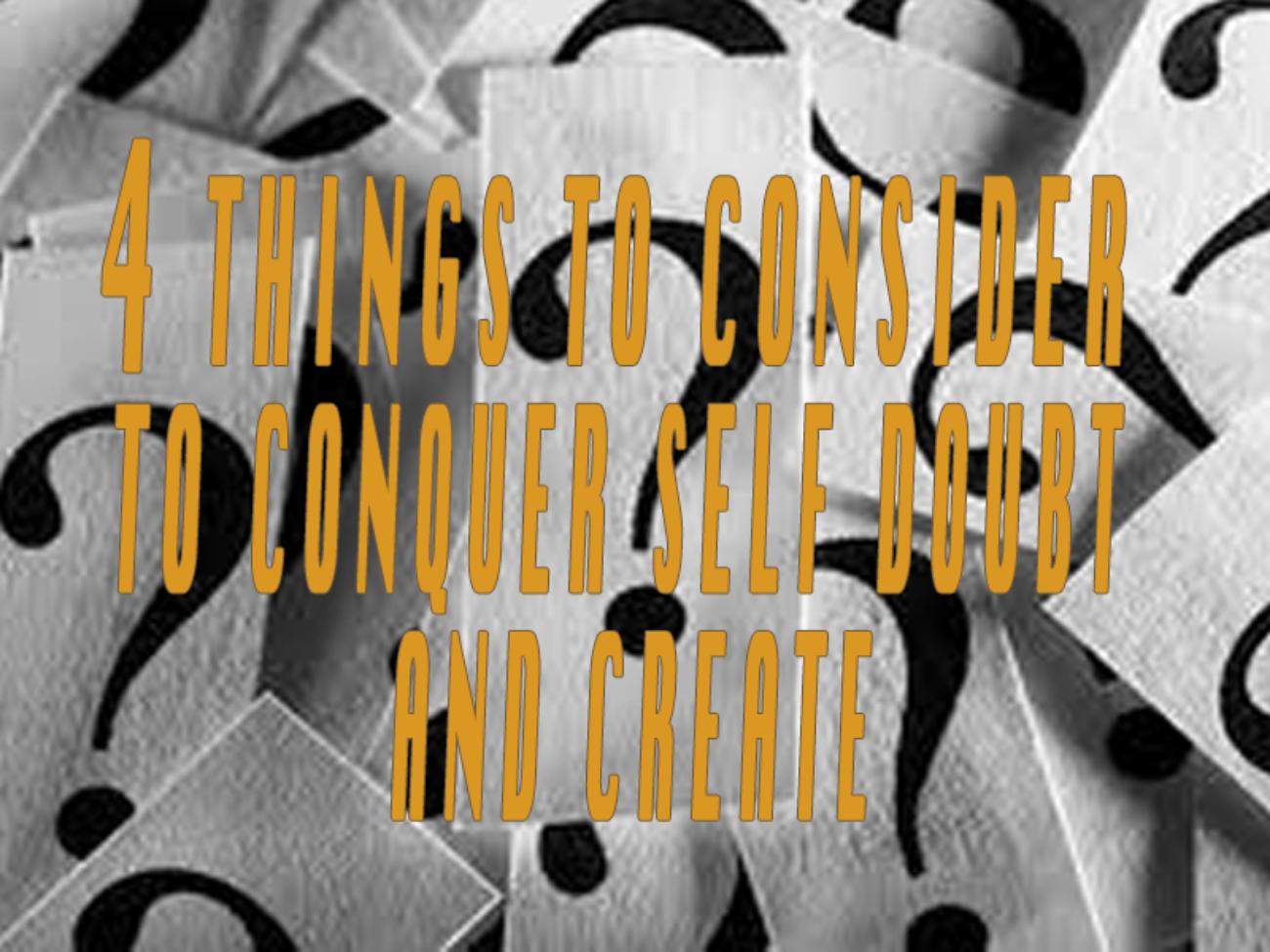Achickwitbeatz presents the Instrumental Intel podcast, bringing you information instrumental to your artistic career including music industry news & tips, insights & interviews, and beats for your inspiration. Listen on Saturdays at 7 pm EST on Grander Radio and Achickwitbeatz.com.
Follow on Facebook, Instagram, Twitter, YouTube Audiomack & SoundCloud, and subscribe on your favorite podcast platform. Download the Grander Media app to listen to Grander Radio on the go.
- Art
- Independent Labels
- Internet Radio
- Music Documentaries
- Album Reviews
- Music History
- Music Industry News
- Free Game Friday
- Free Downloads
- Poetry
- Books
- Interviews
- Did You See It?!
- Hip Hop History
- Hear Here
- Music News
- Hip Hop Documentaries
- Music Marvels Radio Show
- Think Piece Thursday
- Mini Documentaries
- Instrumental Intel
- Music Humor
- Indie Analysis
- Conversations & Quotables
- Music
- Resources for Artists
- Podcasts
- Beats/Instrumentals
- Music Education
00:00
Hey, thank you so much for tuning in to Instrumental Intel. I'm your host, music producer Achickwitbeatz.
00:06
And I've got another show lined up for you to enjoy today. It's filled with music industry news, beats by yours truly. And later my special guest Sandstorm McDowell will be joining me to discuss creative duality, building beats and bars. And so it's gonna be a really great time. I'm excited to be bringing this episode to you. So before I go ahead and press that button to drop that beat, I'd like to give a shout out to my home station, Grander Radio out of Grand Rapids, Michigan. And with that, let's go.
09:10
Hey, this is music producer Achickwitbeatz, and you're listening to my podcast, Instrumental Intel.
11:44
Okay, as promised, I'm back with your music biz brief. First up, let's talk about TikTok's influence and promotion. This summer, TikTok has become a powerful platform for independent artists, with 60% of its top 10 global songs being independently distributed. Notably, the reggaeton track, Gata Only, by Chilean artists, Floyd Menor and Chris MJ made waves, reaching the Billboard Hot Latin Songs chart.
12:11
TikTok is also promoting Post Malone's new album, F1 Trillion, through in-app challenges, giving fans a chance to unlock exclusive content and win tour tickets. So these developments kind of underscore TikTok's growing role in boosting indie artists' success and engagement. All right, next up, Threads has introduced new features that independent artists can use either in creator or business mode. So these updates include tools to track content performance, save drafts, and schedule posts.
12:39
So currently it's available on the web. These features are designed to help artists maintain a consistent online presence and connect more effectively with their audience with mobile versions potentially coming soon. All right, in the realm of music label and distribution partnerships, ROC Nation has merged its label and equity distribution divisions to create ROC Nation Distribution, a new platform that empowers independent artists with ownership of their masters, creative control, and proprietary analytics.
13:08
Additionally, ADA, which is Warner Music Group's independent label and artist services division, has partnered with FTS Global Management for global distribution. So this partnership supports notable Hip Hop and R&B artists and it emphasizes ADA's commitment to artist empowerment and long-term growth. So definitely keep you posted with some of those developments. But it's always good to know about different distributors that are out there and so...
13:33
If you're looking for one, maybe check out what ROC Nation Distribution has to offer. Alright, in the world of ticketing and festival trends, De La Soul is adapting a choose what you pay model for their upcoming NYC show.
13:46
allowing fans to pay the suggested price of $35 or adjust it based on affordability. Similarly, the Boundary Brighton Festival in the UK has launched a Pay What You Can Afford initiative as well for certain individuals, so these flexible pricing models kinda highlight how indie artists and events can connect with fans and try to make shows more accessible. Additionally, a recent survey by a pirate revealed that festival attendance in the UK is declining due to rising ticket prices, with 27% of past attendees
14:16
skipping festivals this year. The DOJ's lawsuit against Ticketmaster also highlights the ongoing issues with the ticketing industry, including efforts to limit competition. So, you know, that particular case with the DOJ and Ticketmaster has just constantly been developing. They're saying that their safe ticks is basically just another way to prevent resellers from being able to enter the market. So yeah, definitely keeping an eye on that and keeping you posted as things roll out.
14:44
Alright, and it's very rare that we get an episode without any AI news, so here we go. Kunlun Tech has launched two AI-driven platforms, Melodio and Mureka. Melodio offers personalized music streaming based on mood and scenarios, while Mureka allows users to create and monetize AI-generated music. Both platforms utilize Kunlun's Sky Music 2.0 model. Additionally, Will.i.am has introduced RAiDiO (and that's RAiDiO.FYI),
15:13
an interactive media platform that transforms radio by letting listeners interact with AI personas and customized content. So yeah, these innovations kind of highlight some of the shifts that people are banking on to happen within the AI world. And of course, they all come with a whole new set of questions about where does human connection and creativity fit in. And once again, that's one of those things that we'll kind of have to see as it develops.
15:39
Alright, in streaming market trends, Tencent Music Entertainment has reported a 30% increase in net profits for the second quarter of this year, driven by a 17% rise in paying users, despite a slight revenue dip. Meanwhile, Kantar's research shows that YouTube Music was the most adopted service in the second quarter of this year, with Spotify also experiencing growth. These trends can reflect a strong streaming market, though 42% of potential users are still deterred by subscription costs.
16:08
And finally, SoundCloud has introduced the SoundCloud Store, allowing select Next Pro artists to sell exclusive merchandise directly to fans. So this new feature, initially available in the US, Canada, and the EU, complements SoundCloud's previous fan-focused initiatives and aims to help artists monetize their superfans and boost revenue.
16:28
Alright, and that's a wrap for this week's music biz brief. I'm gonna take a quick pause for the cause, so stick around. I'll be back with my special guest, Sandstorm McDowell, as we discuss creative duality, building beats and bars. And yeah, keep it locked!
20:52
Hey, I'm Achickwitbeatz, multi-genre music producer and strategist to indie artists and labels. Visit achickwitbeatz.com for resources for artists and instrumentals in various genres available for songs, blogs, blogs, podcasts, themes, TV, film, commercials, and more. Once again, that's achickwitbeatz.com. That's A-C-H-I-C-K-W-I-T-B-E-A-T-Z.com Let's make something happen.
21:22
Thank you so much for tuning in to Instrumental Intel. I am your host, music producer, Achickwitbeatz. And I'm excited, thrilled, and delighted to announce that I have in the virtual building with me today, Sandstorm. I mean, he's a creator of many talents. Yeah, it's even hard to kind of break down everything that you do. It'd probably be easier to say what you don't do, but if you could, you know, give the people a little bit of background as to who you are and how you started your music journey.
21:51
All right, my name is Sandstorm McDowell. First off, I want to say it's an honor to be on here, to join with you and just talk music. I feel like we do this all the time. Yes. Absolutely. Yeah, so my background, pretty much I do anything and everything in music what catches my ear. I started off.
22:21
Well, let me take it back even further. My music, the first time I really experienced music actually was through my mom. And she kind of cultivated me in a way where I really loved orchestrated and classical music. I didn't know that there was anything outside of that. Except for we live in Kalamazoo. And back then, in the early 90s, we
22:51
1560 at the time, so it was really just kind of like rock and roll and all that other stuff, stuff that I wasn't really into. So I really stuck with classical music and thought that was amazing. It wasn't until I was about six or seven, a mutual friend of ours, my cousin, actually we were on a trip. It was for our church. We were on a trip to, I believe, Cedar Point.
23:20
And he was listening to music. I was listening to music. He's like, hey, you want to listen to what I got real quick? And I was like, yeah, I was like, you can listen to what I have. So I was I was banging some Tchaikovsky. I remember this yesterday. I was banging some Tchaikovsky and he hands me his. And like it was it. It was Busta Rhymes, Woo Hah. And that like.
23:50
blew my, I was like, what is this? I've never heard anything like this. Like these guys are saying words that, you know, he's rapping fast and everything. Woo Hah. And I'm like, like the music and the melody. And I'm like, I've never heard anything. And he's looking at me like, yeah, you like that. Don't you? Why can I envision that look?
24:19
So fast forwarding, when I turned 13, between those two times, I absolutely fell in love with music, tried to figure out all the different types of styles of music and everything. My parents were both really into the '80s and the '70s and stuff, so I got a lot of their inspiration into the thoughts and the mindset at how music should go and how it plays. When I turned 13,
24:49
I remember like it was yesterday too, I was at my dad's house and my nephew was living with him at the time and he's downstairs and he's just cranking on stuff. I can hear the keyboard to the computer just clack clack clack clack clack clack clack. I'm like, man, what is he doing down there? And I go down there and he's on a computer program and he's just making music. And I'm like, what is this?
25:18
And he's like, he's like, bro, it's called Fruity Loops. And I'm like, are you making are you making like your own music on that? He's like, yeah, I was like, where did you get this stuff from? He's like, well, actually, it came in a CD, a demo version came in a CD and a Fruity Loops box. And I was like, what? Like, how come I've never gotten this? And that really started the day of like me getting into
25:47
music. And, you know, just like everybody when they start making beats or whatever, you know, they're terrible. There's some of the worst things that you could, you go back now and you're like real cringe about it. But, you know, when you first started, like you had so much pride in it. Like you wanted to show everyone, like, look what I did. I made these beats, you know. And that kind of, that kind of inspired.
26:15
trying to come up with like, okay, I really want to do this. What is my name going to be? Like it can't just be a regular name because no rapper or producer uses regular names like that unless they're really, really popular like that. Unless they got like a cool name, you know? So I was like, so I started off and originally my, it wasn't Sandstorm, I started off with DJ Sandbox. And
26:44
I thought, you know, okay, like I'm like a kid playing in the sand, you know, uh, playing in the sandbox with the melodies and stuff like that. So like, I really liked doing this, but as I grew into the, the making of beats and producing, I was like, the more mature my music sounds, like the more mature I feel like my name has to. So that transition from being sandboxed.
27:14
eventually became Sandstorm. And yeah, I've been making beats ever since I was 13. Wow, that's incredible. And you know, very dope name, by the way. I understand what you mean about the growth. And yeah, you can actually kind of hear it in the transition of the name itself. Yeah, appreciate it. Yeah, but have been doing it at such an early age. That's really impressive.
27:41
I know you had mentioned Busta Rhymes and of course your cousin, Orkastra. Yeah. Who are some of your other, I guess, big musical influences, like whether it be other producers or... Oh man. I have, there's, there's like, so as I've grown into music, I've understood that there's like certain people or like certain points in your life where you like kind of gravitate.
28:09
towards certain things that work as inspiration. So, you know, my cousin, Mr. Wonderful, he was making music before I was making music. So to even hear him, it was just like, oh my gosh. So during that earlier time, and then my nephew who goes by Kid Cassius was a huge inspiration.
28:38
Um, Bus-A-Bus was the whole reason why I like wanted to rap on top of that. Um, and you know, this was like, this was like during the time where like most, most people who are in the game, either they were rappers or they were producers. Like you didn't really have too many of those really kind of mixing in like that. And if you did, they weren't really like in your face like that. You know what I mean? Yeah. Um,
29:08
So when Kanye came out during that time and he was rapping and producing, I'm like, you can do that? Like, you can have two jobs at once and do what you like. So he was a big influence early on, Just Blaze because of the way that he kind of mixed up his samples.
29:33
One of the popular ones, those groups, is the Heatmakers, you know, with CamRon and Juelz, they really worked with the orchestra stuff. So, like, I never wanted to really copy their style, but just to, like, get an ear for, like, how would you kind of go about...
29:55
turning this orchestra music into a Hip Hop joint or, you know, rocking in that way. My biggest inspiration is there's two of them. And I will say this to this day, there are two goats. There are two goats at the game. And everybody's great. Don't get me wrong. Dre is great. J Dilla, like, there's great greats out there. Alchemist is fire.
30:23
But there's two people, well two group, you know a group and a person. That I'm like, man, like they changed the game in such a way is the Neptunes, not just Pharrell, but the Neptunes as group, they completely changed the game from how they started to where they got to when even till now and Timbaland. Like those.
30:52
To this day, you know, like when I listen to One in a Million and people are listening to me, I'm like the craziest thing is this man took a whole cricket sample and made high hats off of that. And people are like, what? They're like, yeah, listen to that. Those are crickets. And I'm like, dang, those are crickets. And he got the airplanes. That is an airplane.
31:18
The stuff that he would come up with, both of them, that would come up with, that were like, I guess like nerdish, you know? Yeah. Like, the nerdy style of trying to do something a little quirky with your beats really was something that I gravitated because I am myself am really nerdy and for making music too, so.
31:43
I would say like you kind of have to be, you know, it's a lot of technical stuff involved in it as well. Not just the feeling but like to actually carry it out and execute it. Yes. Yeah. So I'm a fellow nerd or weirdo too. So I get what you mean by that. And you know, I think that's why though, because when you think about every producer, well, so I'll say this first. There's a difference between a person who makes beats and a producer.
32:13
you know, a person who makes beats typically will only stick to their genre or what they know. They don't like to expand out any further than that because that takes experimentation. And sometimes either you can get lost in that experimentation or you can learn something that you never did. But usually people who make beats stay in that one realm. Yeah. Reducers are nerds, like straight through and through.
32:42
It doesn't really, the background of it doesn't really have to translate to anything like nerd-dumb, you know what I mean? Yeah. Um, but everybody has their own piece. So, you know, even looking at, you know, Pharrell and Chad are perfect examples. Like, they have a lot of the Star Trek, you know, that was their, that was their whole thing. The Star Trek background, the Star Wars, like...
33:09
video game, like all of that was kind of, you could see it pour through into their music. And it was almost, and I guess I can speak, and I'm sure this is the same with you too, is like the experiences and the things that you go through, you want to have them come across in a melodic way. So, where a rapper will talk about stuff that they've been, well, most of them.
33:36
which the real rappers back then would talk about stuff that they've experienced or that they've witnessed or went through. We do it in the same way, just in a musical sense. Mm. Yeah. I've never thought about it like that, but you're right. Wow. So yeah. Okay. Well, speaking of that, what does your creative process look like when you get ready to, you know, sit down and produce?
34:06
Oh man, so I take two forms. Form one and form two, if you will. So form one, if we're talking about something from scratch, like I have nothing in mind, I didn't come up with anything that was like floating through my head. Like I said, I'm a nerd. So like most of my inspirations will come through, actually come through experiences of video games that I've played.
34:35
Um, so, um, whether it's like a serious tone game or like a horror game or a racing game, you know, like whatever I just got done playing or whatever is my passion and playing video games since this is where my mindset is going. So it's almost like creating a soundtrack that I created myself for a game. Um, and so when I, when I step in, it's like, okay. Um,
35:05
I always do drums last, but percussion usually comes before the actual drum piece for me. Okay. I'll think of, okay, what's one of the most dopest, exciting moments that I had in a video game? Okay, okay, that's it right there. That's what I want to convey because I want somebody to see when they sit down. Usually it-
35:34
I'll say this on the side, usually if somebody is listening to your beats as a producer, they always try and attach it to a rapper that they either know or you know, whether it's now or old school. So me, naturally, I don't think of like, okay, like who would be who would be dope for this moment in time in this video game? Is more like, okay, how does...
36:04
how does this melody vibe with what I'm going through at this point in time? And so when I have the melody laid out, everything's established, I do it like a game of Tetris. So like, say I'm, let's think of an easy one, a grand typo for everybody that can understand
36:32
the popular video game Grand Theft Auto, and I'm walking down the street and my guy is kinda, he's kinda got that rock in him like, okay, he's got a little bit of rhythm to him. What city does this take place at? Okay, this is on the West Coast. So he's gonna need that boom, boom, you know, like a good like heavy vibe to just kinda cater to his walk. Now starts the Tetris piece. Okay, I got the main lead part.
37:02
Okay, that sounds good. Now what's going to be in the background of that? That's going to kind of mesh well with the melody. Okay, I got that. Now is there anything else that I could put in here? Sneak in here on you that you like you hear, but you don't really hear it because you're too busy listening to like the melody or the lead part. Okay, I got that. Now it's time to slide in the hats to give you a little feeling. Okay. Now you've got your walk in you. Okay.
37:29
but now you want that heavy, just that one-time kick, that boom, you know? And so that's really how I go about the process. But that's only one side. Now the other side is completely different. And that is when I already have a melody or a beat in mind. So another thing about producers, which I love,
37:59
because I know Achickwitbeatz does this too. Like we've vibed before. So I can, I know. And Mr. Wonderful has done it. Every producer in the past that I've been around does it. You catch a melody, whether it was from an outside source or somewhere in your head and you like, you like, yeah, I got that. And you like, you re-
38:28
You'd like rewind it and rewind it in your head. You already added the beat. You're like, yeah, yeah. Ooh, that would be fired. Like, and you could, you could see it in a producer's face because they get that. Like, I'm thinking about life moment, you know, like, oh, yeah, I'll be right back. You know, so being in having.
38:57
moving into that spot, it really, it's a faster process, but it's a faster process with more mistakes. And the reason why I say that is because originally when you have it in your head, like, oh, the melody may have sounded good with the piano. And you're like, oh, like when it actually, you actually transition and put it in with the piano, sometimes you're like, oh.
39:24
Nah, it wasn't a piano. That's not what I was thinking. Like I thought it was that way. But it don't sound like how I actually want it. So then you move to another sound. And then you're like, ah, nah, that's not what I was thinking either. So you're like, you know what? All right, let me just leave this here. Let me move on to the other pieces that I know. If I can create...
39:53
the shape of it, then I can really work out the details of how this is supposed to go. And sometimes when you get the shape, you're like, dang, I didn't like that before. It's actually dope now. That's exactly what I was thinking. Other times you're like, ooh, okay. Okay. Now that I got this, now maybe it was just if I just turn this and tweet this, add a little reverb. Okay.
40:23
that's what I was thinking it was gonna be. So yeah, they're, they're two different, they're two different attacks, um, two different styles. I say with the second style, I tend not to try and go outside the box of what I was thinking. Um, as opposed to the first style, I'll try something way different, but in trying something way different, most of the time it works out on the first style where on the second style, I just,
40:53
I'm trying to get what I envision. So it has a lot more mistakes to it. Yeah. I feel that first of all, let me say that first way is incredibly dope. Yeah. What a way to, you know, kind of compose. Like you said, the soundtrack, if you will, that's really dope. And to be able to draw inspiration like that from video games is just phenomenal. And also with the second way, I know that there's been a few times to where
41:23
something might pop up in my head and I think, oh, like, I remember it. So this is kind of like early starting and then, you know, there was a few times where I didn't. So now it's like you get those moments where you might be in the car and all of a sudden using notes to record. Like, I know I probably look crazy to anybody next to me at the light. Like, what is she doing? Just beatboxing into the phone. Yes. And, you know, like I'm
41:50
I thank technology because we didn't have that even in like the, you know, the early 2000s where you could just simply be like, you know, like it, you would annoy your friends because you'd be like, you know, like all the way until you got home. Like, don't talk to me. Like, okay, but like, are you really going to do that? The hook? Yes. This is going to be fire. Trust me. But I have to remember it because as soon as I forget it, I'm going to be mad. And
42:19
90% of the time, somebody with just one question will mess up the whole, your whole thought. And you'd be like, dang, now I can't even remember what I did. Yeah. So just to have technology at hand and be beatboxed. And you know, I'll even say this, because you can't always beatbox the whole thing that you thought of, you like, you gotta break it into parts. Like, percussion part. You know what I mean? Yes.
42:49
that no, it looks crazy to outsiders that don't know what you're doing. Like what in the world? Right. Yes. So, OK. You know, you talked about your your background in music and how you kind of developed into production. Can we talk a little bit about how you got to actually writing and performing as well? Oh, man. So.
43:15
Wow, this is a funny story. So I started off writing because I had another cousin down in Atlanta, shout outs to Trey Vito, who's the co-host on my podcast. He was the rapper, you know? And I was the producer and we've gotten to the point, speaking today that like,
43:45
every kind of major move that we make, we talk amongst each other about making those moves. And that's just kind of the building of the relationship. But back then, I was producer, he was the writer, and eventually he was like, hey, like...
44:05
I know this, but you don't know this yet. Like, you're making beats, but part of you is actually rapping in your head about how these songs should go, you know? And I was like, dang, like, can he, can he read my mind? Like, you know? And so I started off and, you know, just the same way with beats, I was, I was absolutely terrible.
44:35
But when I started getting going into writing, we were actually like doing a, making a little movement and it got my friends together to start doing the same thing. And eventually we had a group, I think it was 16. We had a group known as DRC, the Do Rag Clan.
45:04
Like we had a whole bunch of songs and it was just, it was great. And I realized that I actually liked writing. So I'll say this as a side. When I was the writer, my stage name was Dust Ryder. D-U-S-T-R-Y-D-E-R. And when I was producer, it was Sandstorm.
45:34
Um, eventually I had a sit down with, uh, with my Godbrother and he was like, listen, he's like, it's cool that you want to rap. He's like, but he was like, your logic, I see your logic. Like if you go further and one, this is what you're going to be named as. And if you go further than the other one, that's what you're going to be named as. He's like, but for simplicity purposes, why not just be one name?
46:01
And so he was like, but sit down and think about which name you really want to be. And obviously I ended up translating the sandstorm. Um, but we, man, we, we wrapped, um, we had a whole bunch of people in a wrap and actually my rap and trickled over into, um, church cause I, at the time I was doing, um, I was doing church as well. They had just started a rap ministry. Um.
46:31
And so I was rapping and producing for church. That has, I've seen like the fruits of that evolve over time to the point where now, it's actually been really amazing is that I was once the new person, like the new student in the rap ministry. Now for my church, I'm the ministry leader.
46:59
So now, not only do I get to perform and do all that other stuff, which is fun, I actually get to teach other kids about the rap history, how to rap, you know, so they can be able to take those and be able to, you know, minister or rap how they want to, as well as the beats. So the writing...
47:26
And between that time, the writing has never really stopped. Like, you know, we have producers, we have, we get producer block, you know? Yeah, like it happens from time to time. But the good thing about being a producer and a writer is that sometimes when you're a producer, you make way more music than you do writing.
47:55
So then when you start having blocks like that, you're like, okay, well, maybe I can just go back and start writing to some of this stuff. And so when you're, so as I'm writing, like I've never really had a block. Yeah, maybe I might write the same line for a song that I wrote, you know, for the last song, but like what rapper has not done that? You know what I'm saying? What rapper has not taken a...
48:22
you know, a Mike Jones line and said it about 50 times on, you know, 10 different tracks. So, but yeah, just, just the writing, the writing style for me too, has been really interesting. And I'll, and I'll say interesting in this way is because rap continues to evolve, right? How, how rappers wrapped in the early nineties is different than the late nineties is different.
48:51
than the early 2000s, which is different than the 2010s. And even now, like all the styles are different. Yeah. You don't, to me, the popular misconception is that you always have to stay with whatever is trending at this point in time. And that's never true. You, however you rap, and actually I learned this.
49:20
from, from, from Method Man. However you rap, regardless of how the beat drops, regardless of how it's laid out, you can still spit fire the same way you spat it 10, 20, 50 years ago. It's about what, it's about how you convey those words, how you lay down whatever lesson or whatever story or, you know, whatever punchlines you're trying to tell. That's the most important thing.
49:50
it may not necessarily always be about your cadence and being up to date. Right. Right. Especially since you mentioned Method Man. I mean, he was dope back in the day, but like, even listen to his current stuff and, you know, how he's challenging himself lyrically. Like, you know, when he said he was going to stop using curse words just to step his bars up. And I'm like, yeah, you know, that's kind of interesting because, you know, sometimes we do kind of use stuff like that as a crutch.
50:17
Yeah, but yeah, the fact that he's still growing and challenging himself and just continuously evolving, like, yeah, that's a really great point. He brought up a great person to make that point. Yeah, I heard, you know, I heard him like, I want to say it was like last week or two weeks ago. I didn't realize that he was doing some sort of freestyle battle. And I'm like, what? I'm like, man, doing a freestyle, he must be rapping against somebody old. And like, like, he was rapping against, you know, a current.
50:46
current generation rapper. I couldn't even, it don't even matter who it was because he killed him. But like, but like he was going in and I'm like, these are Meph bars, but like this guy is snapping right now. Like, and Meph already has always been a snapper, but like the way his cadence went, it was still current. Like it didn't, it didn't change between how he was rapping back in the day with Wu-Tang to now. Like it's still the same cadence.
51:17
But the words he was conveying in that was like, okay, like that's confirmation. Like you can do what you wanna do regardless of the times. Right, right. And Hip Hop is the only genre that age change. Yeah. Like I'm really hoping that that changes. Hip Hop and rap I should say, but yeah. I mean, with Hip Hop turning 50 last year,
51:45
It makes sense that some of these styles have changed and evolved, but just because there are new people coming underneath, it doesn't mean that some of us that were there from like the early days, you know, we still want to listen to it. Like, yeah, my husband and I went to the Rock the Bells concert that was in Detroit. And I mean, just seeing those acts there was just phenomenal. That place was packed. Everybody was having a good time.
52:10
And yeah, like, you know, just because we older don't mean that we stop loving the music. So, yeah. Super facts. Yeah, absolutely. I'll put this too. Just as an extra thought is that the music today, I'm not, to be honest, I'm not the hugest on it. Not that the...
52:38
it's bad or anything like that. My interest just kind of wanes with it. But the thing that I always keep in mind is that just because how the producers produce today, and I'm not talking about the process, but the sound and the way the beats are and everything doesn't make old styles irrelevant. And I think coming if...
53:05
If I had to talk to anybody who was just getting into the game, if you were really listening to Pac or something like that, whoever your inspiration is, and you wanted to make beats, but you feel a little discouraged because those aren't the typical styles that you hear these days, I just want to encourage you to push that. Because one thing that I've learned is that,
53:33
regardless of what's trending now, there's always room for every style. And some of the most, you know, the people that I listen to now, I guess you can kind of call them inspirations, but not necessarily. I just really like, you know, what they've been putting out. So there's actually two of them that are really big with me. Technically, there's three.
54:03
There is Sango. So this guy came out of Grand Rapids, Michigan, a while back, and he now resides in Seattle. His style, if you listen to his regular stuff, like his latest mixtape, I think it's called Great Lake Effect or something like that, which is catered to us Michiganders, you can definitely tell he's very much Midwest.
54:33
But if you go back before that, or even that, I would even say the last four to five mixtapes or albums before that, producer by the way, they're all that Brazilian-like trap style. And that is something like, like, wow, like some of those beats just goes like stupid hard to the point where it's like, man, I kind of want to try that. I don't want to bite.
55:02
But I kind of want to try that just to get the experience of being able to come up with a style like that. And then there's another guy. He's overseas. Amazing kid. 26 years old. His name, he goes by the name Sam Gallatry. If you, if you get a chance, Kaytranada, if any of you guys know who that is Kaytranada.
55:30
is doing a show in Chicago, I believe September, it's either September 4th or September 9th. If you get tickets to that, definitely keep your eyes and your ears open because Sam Gallatry is also supposed to be a part of that show. And this guy, he, his style, he has that nerd-um in him too, but his style for his first couple episodes
56:00
or episodes, his first couple albums and mixtapes were about experiences of nature. And he would make those into beats and stuff like that. But now his flow has transitioned to an experimental, I call it English pop, because it's not necessarily like the American style. But some of the stuff that he comes up with.
56:29
like uh the perfect song is like assumptions he's just started like using his voice on songs and i'm like bro you should have been singing a long time ago you should have been making hooks a long long time ago um but both of but his style is kind of it's not it is of today but it's not you know what i mean like it it has echoes of today's stuff
56:55
But you can really tell that he listened to a lot of like early 90s American style, like techno and stuff like that to really get that pump going that makes you like, yeah, okay. Yeah. You know, um, so, so yeah. So I say all that to say if you're a new producer or you're a producer, just.
57:18
just starting or a producer coming back into the game. Don't get discouraged about the hi-hat sequences. Don't get discouraged about the, what is the style called? The drill style. If you wanna try that, it's perfectly great to experiment. But if that's not something that you can do, don't be discouraged. Stick to what you know and evolve your own style.
57:47
That was excellent advice. Thank you so much for sharing that. And since the clock is staring us in the face, I already know, got to have you back again. This has been great. Thank you for taking time out of your busy schedule. But I want to make sure that before we close this out, that everybody knows where they can follow you. Check out your podcast and all the stuff that you got going.
58:13
Yeah, so you can follow me. I am on Instagram as Sandstorm McDowell. Make sure you go follow that. Twitter as well. I think the Deacon is in front of it, so it may be Deacon Sandstorm McDowell. Also, we have a podcast every Saturday, if you want to see us nerd out.
58:36
We talk anywhere from video games to animes to TV shows to movies to music. Like we talk about everything under the sun. Um, it is called the Sandstorm Show, but it is under a Sandstorm McDowell as well. Um, MCD O W E L L for anybody who wants to get that spelling. Um, and yeah, just, just follow us along. Um, just come along for the ride. We do.
59:05
We do giveaways, all that fun stuff. But it's really about the interaction. We love interacting with our fans and our subscribers and stuff. So yeah, come on through and check us out. Great. That's what's happening. Thank you so much. I'm already looking forward to next time. Yeah, thank you. All right, and that does it for this week's episode of Instrumental Intel. I've been your host, music producer, Achickwitbeatz. I want to thank you for listening. I want to thank my guest, Sandstorm McDowell.
59:33
for coming in and sharing his story, experience, and wisdom. Looking forward to doing it again soon. And of course, I'd like to thank my home station, Grand Radio out of Grand Rapids, Michigan. Make sure that you come back next week. I got another great show lined up for you with Mr. Wonderful, AKA Tha Orkastra, joining me as my special guest, so you don't wanna miss that. And so, till next time, you know where to find me. Tune in, tell a friend. I'll see you then, peace.
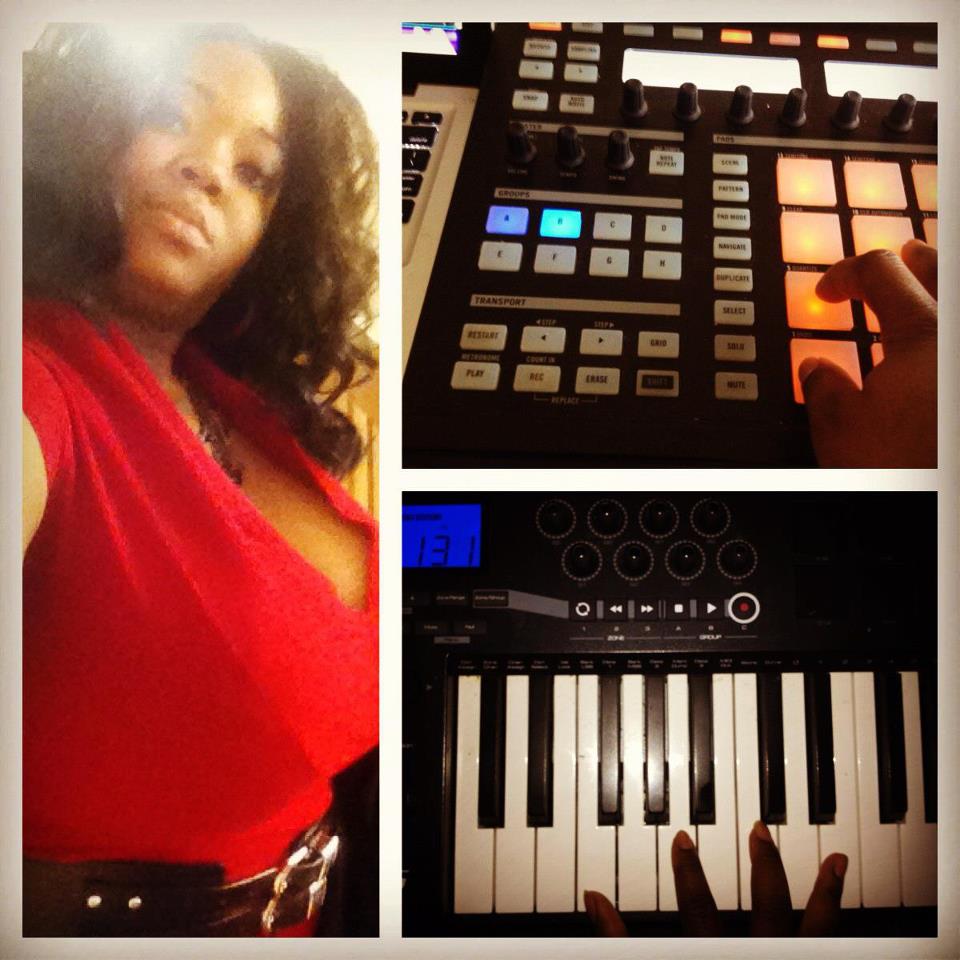
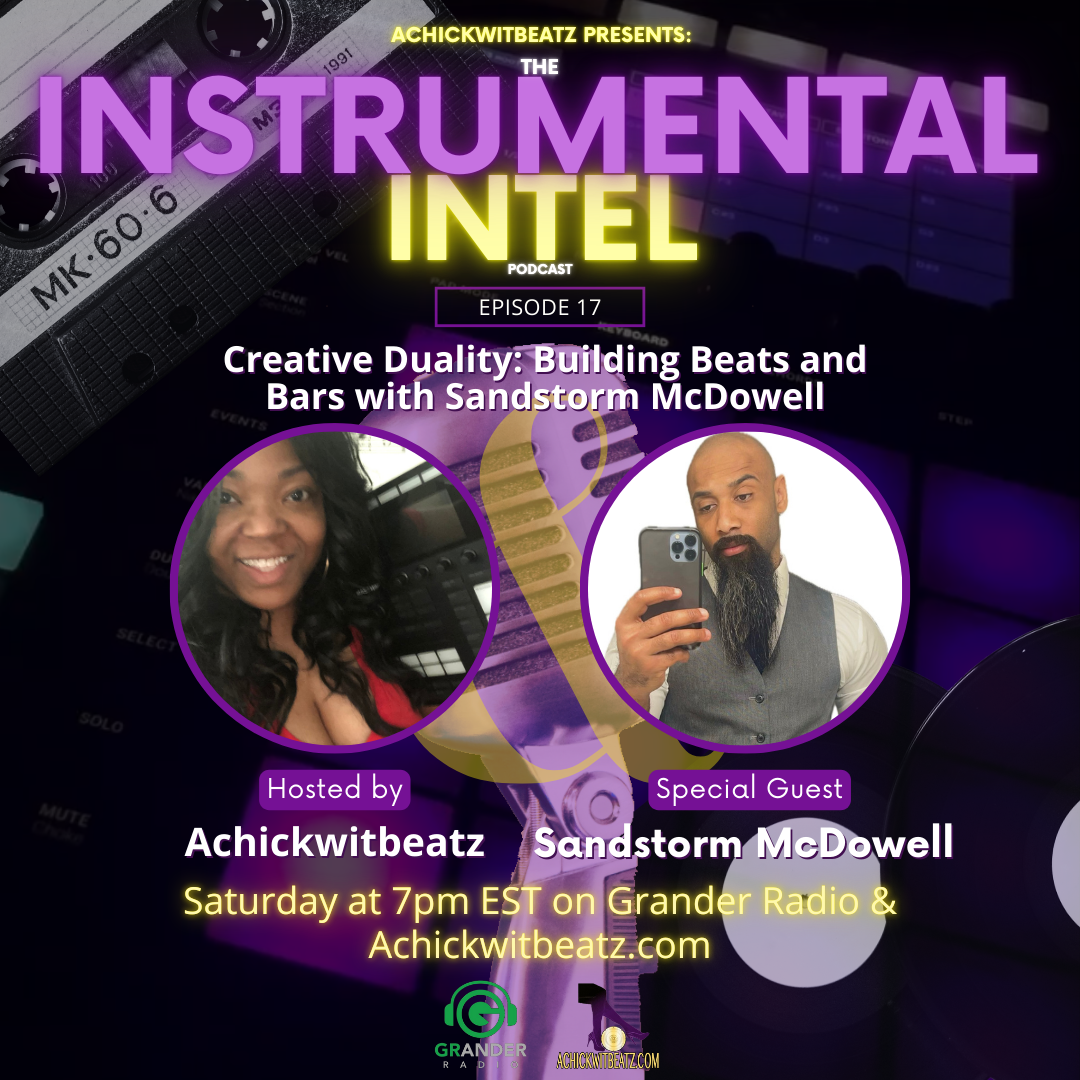






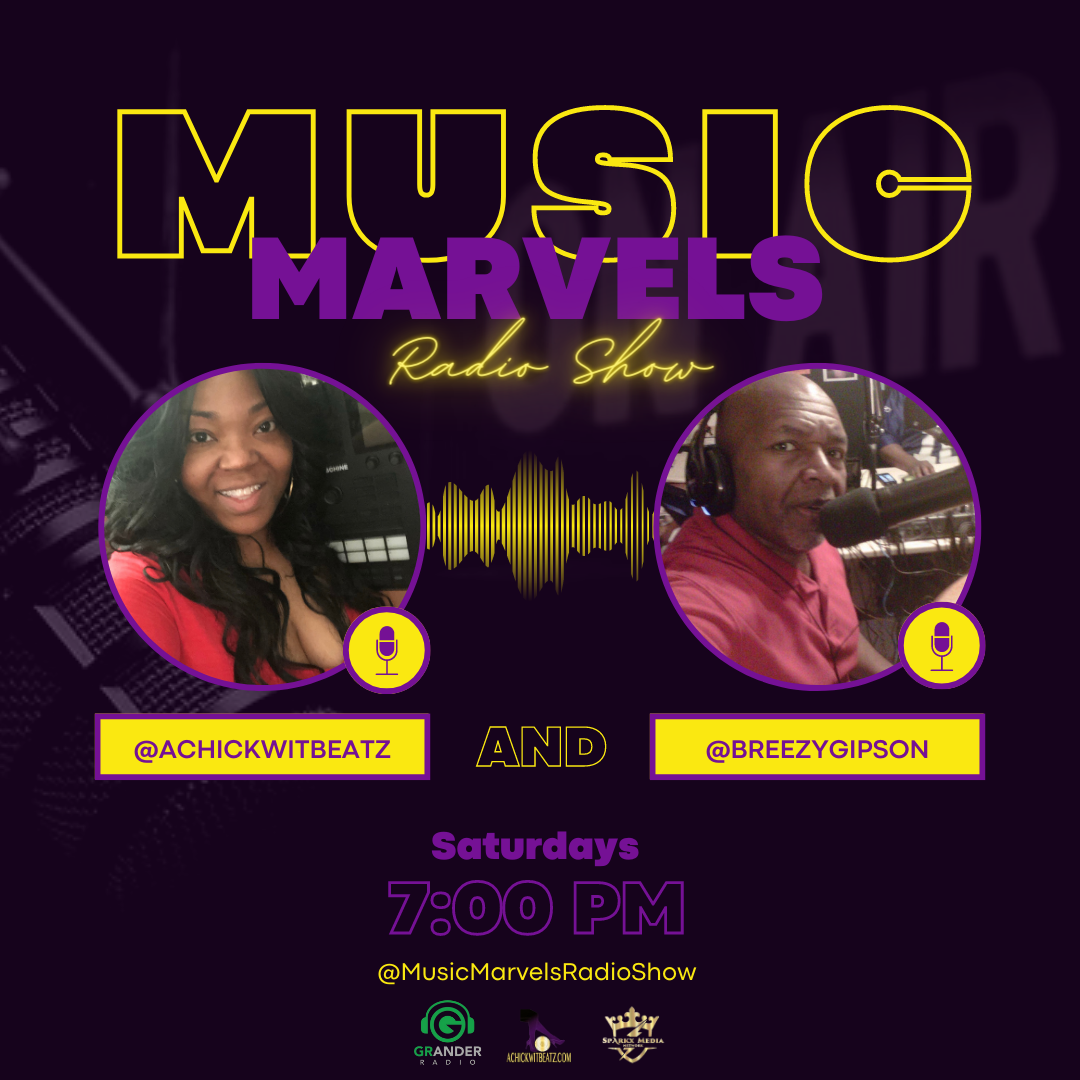
![Hear Here: Achickwitbeatz - Dopamine & Serotonin [Single]](https://images.squarespace-cdn.com/content/v1/52b0b90ae4b0293bfed0d692/1710852808557-EZYGFDIBHLBSIRFOVS1Q/Dopamine+%26+Serotonin.JPG)


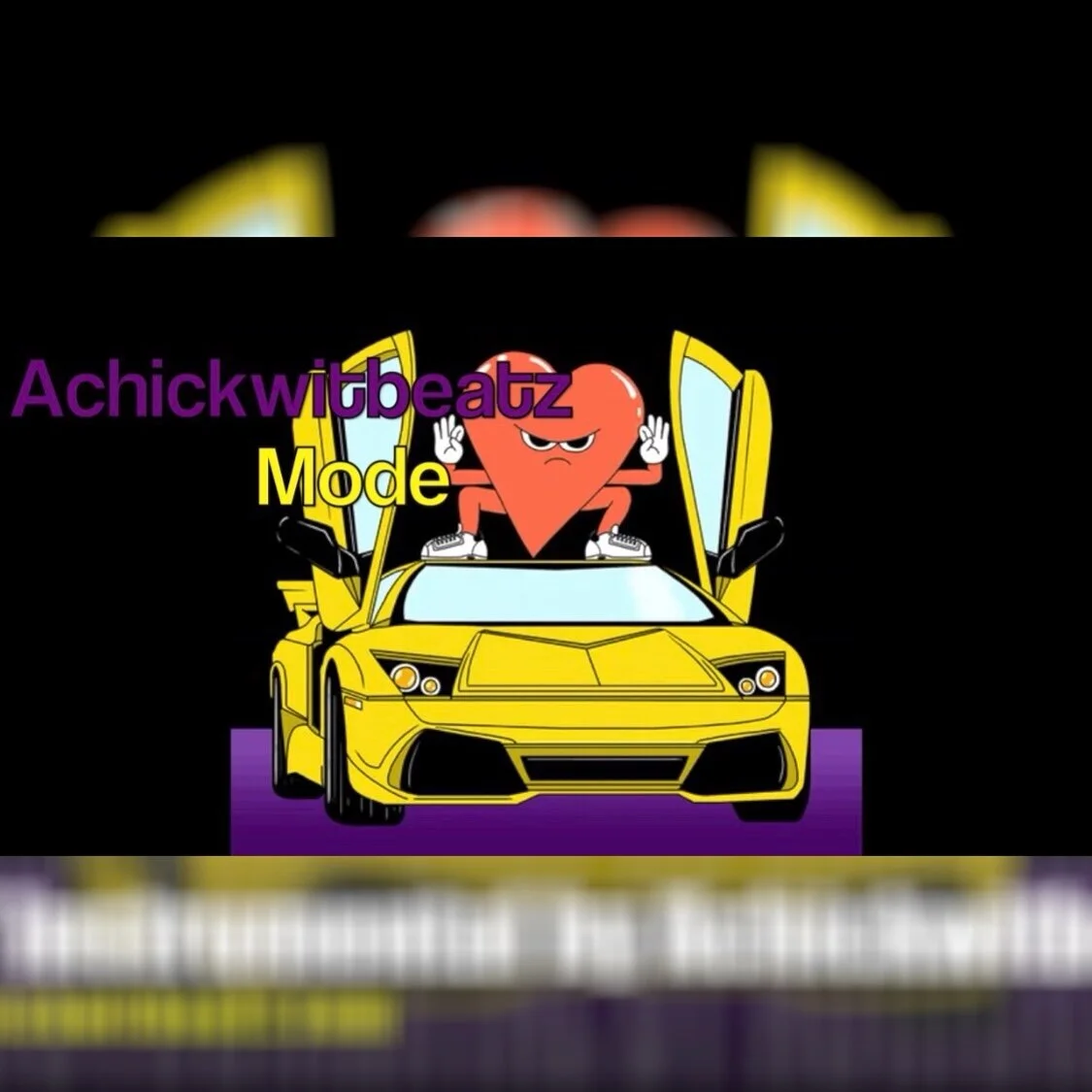
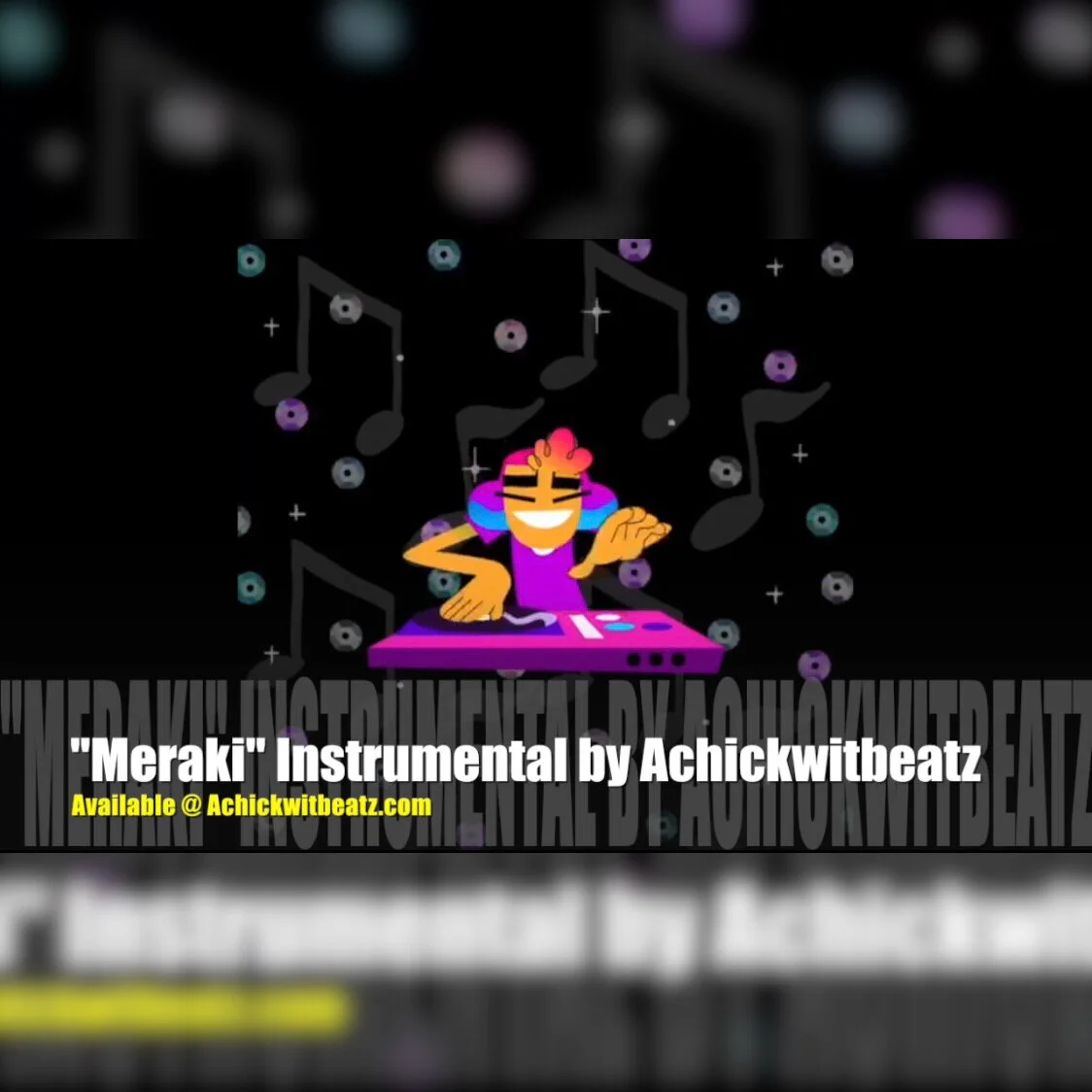





![Hear Here: Dagga Man- "Analytics" [Prod. by Achickwitbeatz]](https://images.squarespace-cdn.com/content/v1/52b0b90ae4b0293bfed0d692/1584638158548-9R55AZLWZIDFJC8LATV6/IMG_2212.JPG)







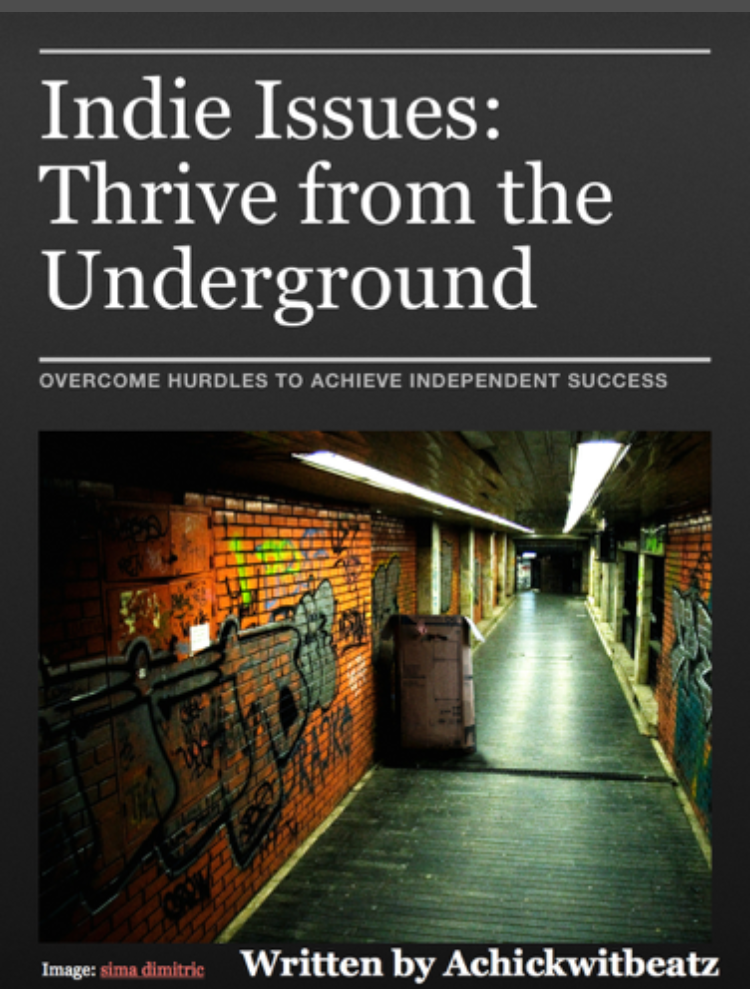
















![Making Music on a Budget [Infographic]](https://images.squarespace-cdn.com/content/v1/52b0b90ae4b0293bfed0d692/1582844361438-3JTE5NT3EL51FHXC0WJI/making-music-on_1929722%25281%2529.jpg)
